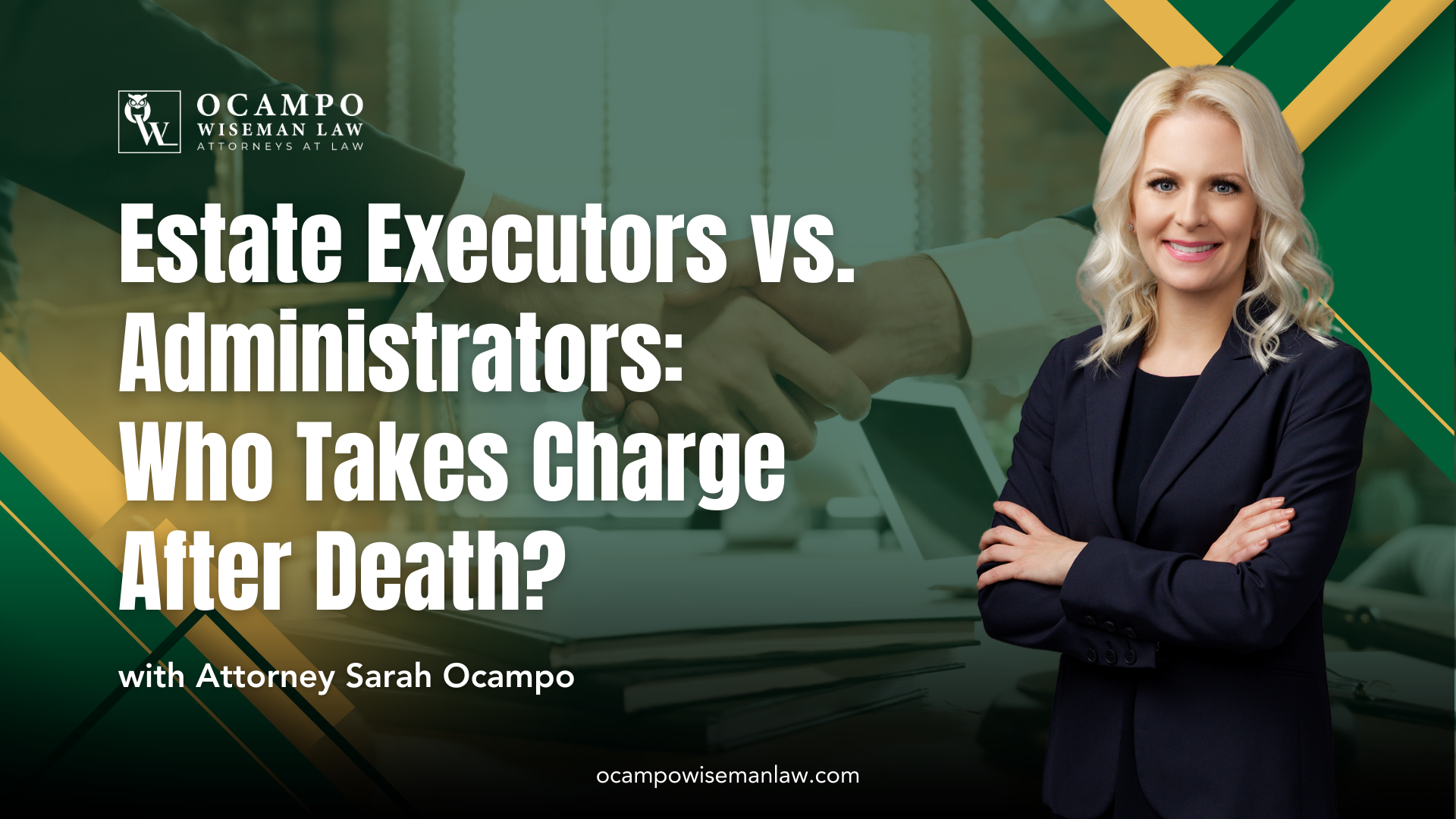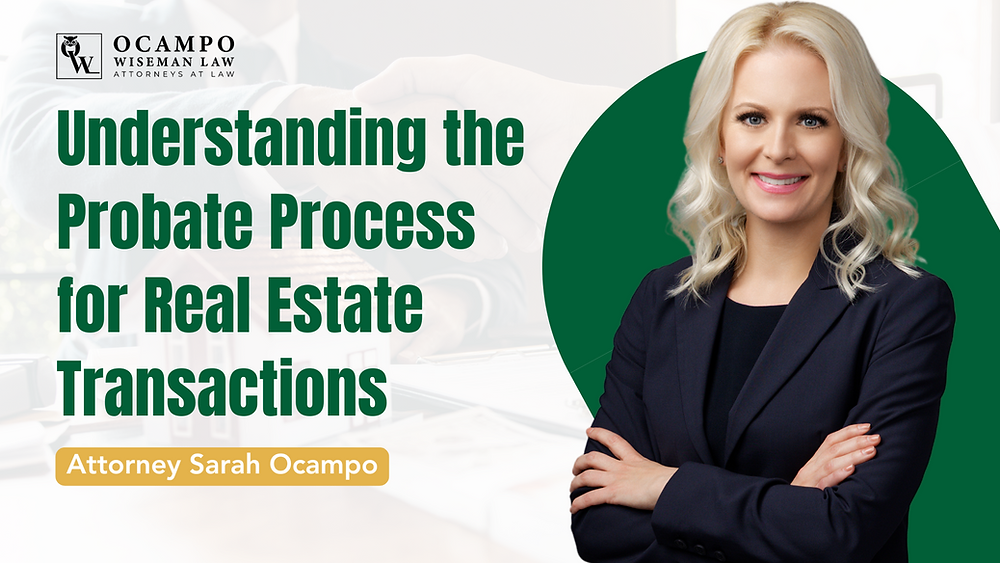Who Manages an Estate After a Loved One Passes Away?
Sarah Ocampo

When someone passes away, one of the most pressing questions families face is: "Who's actually in charge of handling the estate?"
This article will walk you through everything you need about estate administration, helping you understand who has the legal authority to manage assets and make crucial decisions.
Understanding Estate Administration Basics
Estate administration isn't just about distributing assets - it's about having the legal authority to manage someone's entire estate after they pass away. This includes handling bank accounts, paying debts, selling property, and ensuring assets go to the right beneficiaries.
When There Is a Will: The Role of the Executor
When a person creates a will before dying, the process is relatively simple. The executor in the will has the legal right to manage the estate. However, it is critical to recognize that:
- The court must formally appoint the executor
- To be validated, the will must pass through probate.
- The named executor can decline the role if they want.
- The court may reject an executor if they are deemed inappropriate.
When There Is No Will: Understanding the Priority Order
If a person dies without a will (known as "intestate"), the issue becomes more complicated. While anybody can potentially petition the court to become the estate administrator, courts adhere to a rigorous priority order:
- Surviving Spouse: Has the highest priority and most substantial legal claim
- Adult Children: Next in line if there's no surviving spouse
- Parents: Have priority if there are no children
- Siblings: Can petition if no immediate family members are available
Key Responsibilities of Estate Administrators
The person in charge of the estate, whether chosen by a court order or a will, must:
- Make a list of all the assets.
- Pay taxes and other outstanding bills.
- Preserve property until it is ready for distribution.
- Assign assets in accordance with state legislation or the will.
- Submit the required court filings
- Properly close the estate
Practical Steps to Take Now
- If you are creating an estate plan:
- Choose your executor carefully, taking into account their abilities to bear the task.
- Inform your chosen executor about their future position.
- Keep your will and important documents in a secure yet accessible area.
- Review and adjust your preferences regularly.
- If You Are Named as an Executor:
- Understand your responsibilities before taking the employment.
- Keep copies of important documents.
- Know where to find the will and other essential paperwork.
- Consult with an estate attorney for help.
- If There is No Will:
- Understand your priority level in the court's structure.
- Gather the appropriate papers regarding your relationship with the dead.
- Consider if you're willing and capable of serving as administrator.
- Consult with family members to prevent future disputes.
Common Challenges and How to Address Them
- Family Disputes: Have open discussions about the administration process early
- Multiple Petitioners: Understand that the court will follow the priority order
- Complex Assets: Consider seeking professional help for complicated estates
- Time Constraints: Be prepared for the process to take several months or longer
When to Seek Professional Help
Consider consulting an estate attorney if:
- The estate includes complex assets
- There are potential family conflicts
- You're unsure about your legal responsibilities
- The estate may be subject to significant taxes
- There are business interests involved
Looking Ahead
Understanding who controls an estate after death is critical to estate planning and management.
Whether you're preparing your own estate or managing someone else's, following these principles can help prevent family disagreements and guarantee a smooth asset transition.
Final Thoughts
Remember that, while anybody can potentially petition to manage an estate, courts have set specific priorities to guarantee orderly administration. Understanding these principles will help you manage the estate planning or grieving process more efficiently.
Consider this information as a beginning point for more in-depth discussions with family members and legal experts.
The more prepared you are, the better you will be able to deal with difficult situations as they happen.




